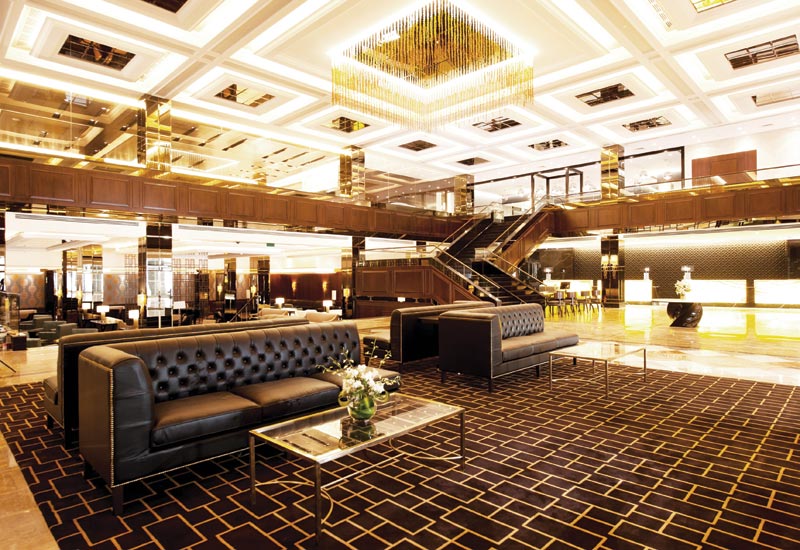 The stunning lobby of the InterContinental Regency Bahrain makes an immediate impression on guests, decked out in brown leather and shimmering gold.
The stunning lobby of the InterContinental Regency Bahrain makes an immediate impression on guests, decked out in brown leather and shimmering gold.
“They offer you an umbrella home. Within IHG you have the flexibility to change brands, if you wish, although you have one main employer,” he adds.
“Changing countries, changing brands, changing properties, changing people, changing focuses gives you — every two or three years if you wish — a new understanding and a new learning. To do that with one employer I find incredibly rewarding, as you get to know them and they get to know you.”
Although based in Bahrain, Koth is now also director of operations for the Northern Gulf for IHG, overseeing properties in both Bahrain and Kuwait. “We’ve got an exciting project coming along in Kuwait,” he says.

| Advertisement |
“It will be a first-time presence of InterContinental in Kuwait and it’s a stunning property. With that addition in mid-2013, we will have four properties in the country — two Holiday Inns, one Crowne Plaza and one InterContinental.
“It’s been under construction for about three years, it took longer than expected and slowed down at the beginning of the crisis in 2009. But the building is topped out and they are doing all the cladding now, so we are very confident.”
However, he is not so upbeat about the immediate future for other developments in his area. “Let’s put it this way,” he says, “Bahrain and Kuwait are probably, at the moment, not the two GCC countries which are most prospering in comparison to developments in the UAE, KSA and Qatar.”
Northern Gulf outlook
Koth says that although this is the case, spirits in the countries haven’t been dampened, and five-star hoteliers in Bahrain took a “collective step” last year, “as a reactive measure and as a proactive tool to collectively lower their prices”.
He says that this has helped open the hotels up to new markets, as traditional leisure and KSA guests have been taken by four-star properties opening in Juffair.
“February 14 2011was a unique date for this country and occupancy rates at that time were depressed into the 10s, not even the teens. So, in comparison, it is a great growth. But, still, 40, 45 or even 50% wouldn’t make any hotelier, nor any operator, nor any owner, really happy, so we are still working on getting more.”
In Kuwait, he says occupancy has recovered somewhat and, now, “is well above 60%”. He adds: “I don’t think Kuwait is seeing very bad times, actually. They are doing very well.”
The hotelier’s biggest challenge, he says, is in his hotel in Bahrain — keeping his staff “engaged, motivated, encouraged and always striving for more”. “In times of difficult business, it can often go the other way,” he adds.
Koth plans to combat this by “appraising and rewarding, but also stretching and challenging, and being incredibly sociable”. “Being one family that works together is a very rewarding tool in the diverse mix of nationalities that we employ here.”
For the coming two years, Koth says that his main aims are to “consolidate what we’ve got, improve on what we have and work on seeing more travellers frequenting Bahrain as a destination”.
However, he adds, that he “can’t do this alone, so we have to work collectively with our competitors and with the government, the exhibition centre, and the ministry of culture, hand in hand to get the message out”.








 Search our database of more than 2,700 industry companies
Search our database of more than 2,700 industry companies









